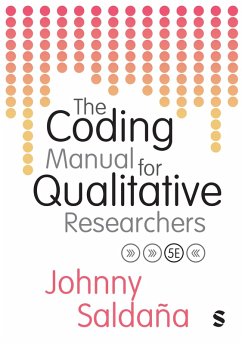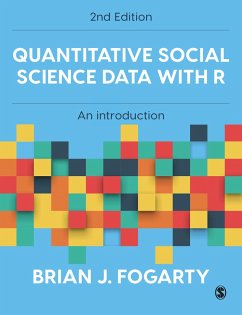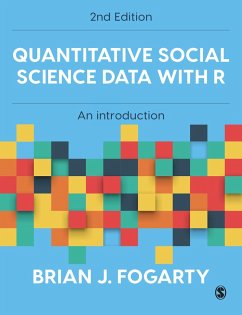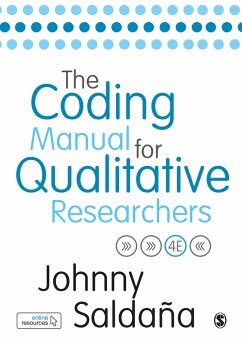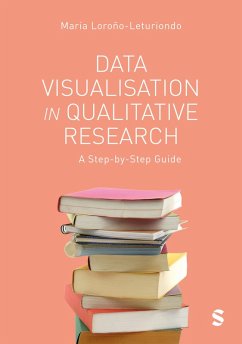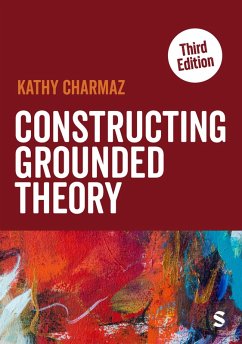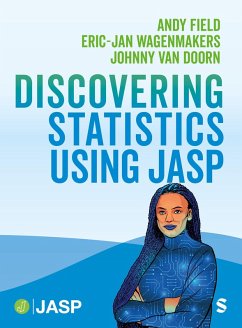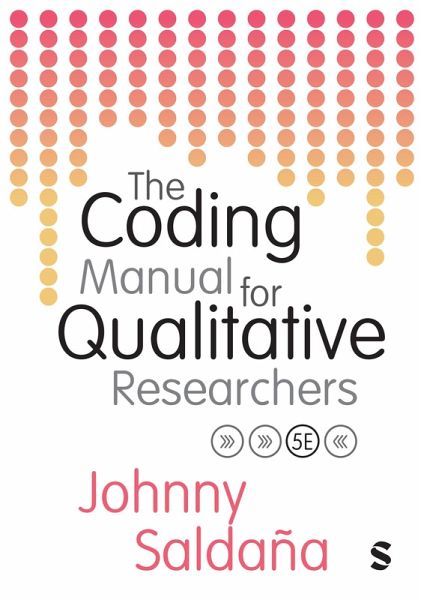
The Coding Manual for Qualitative Researchers (eBook, ePUB)
Versandkostenfrei!
Sofort per Download lieferbar
73,95 €
inkl. MwSt.
Weitere Ausgaben:

PAYBACK Punkte
37 °P sammeln!
Unlock the full potential of your qualitative research projects with this invaluable manual from world-renowned authority Johnny Saldaña. This essential guide delves into the latest advancements in coding, including the integration of AI tools like ChatGPT-4, empowering researchers to enhance their data analysis processes and outcomes. This clearly updated edition offers: · Comprehensive Coverage: Explore over 35 coding methods, complete with datasets, software screenshots, and multidisciplinary academic references. · Global Appeal: Designed for an international readership, with inclusive d...
Unlock the full potential of your qualitative research projects with this invaluable manual from world-renowned authority Johnny Saldaña. This essential guide delves into the latest advancements in coding, including the integration of AI tools like ChatGPT-4, empowering researchers to enhance their data analysis processes and outcomes.
This clearly updated edition offers:
· Comprehensive Coverage: Explore over 35 coding methods, complete with datasets, software screenshots, and multidisciplinary academic references.
· Global Appeal: Designed for an international readership, with inclusive data and real-world examples.
· Practical Guidance: Clear, academically grounded advice that bridges the gap between data generation and analysis, ensuring credibility and trustworthiness.
· Modern Relevance: Facilitates both manual and online coding, with detailed insights into CAQDAS and digital data handling.
Ideal for students, researchers, and professionals in education, the social sciences, and beyond, this manual with its' accompanying online resources is your go-to reference for mastering qualitative coding and data analysis in the AI era.
This clearly updated edition offers:
· Comprehensive Coverage: Explore over 35 coding methods, complete with datasets, software screenshots, and multidisciplinary academic references.
· Global Appeal: Designed for an international readership, with inclusive data and real-world examples.
· Practical Guidance: Clear, academically grounded advice that bridges the gap between data generation and analysis, ensuring credibility and trustworthiness.
· Modern Relevance: Facilitates both manual and online coding, with detailed insights into CAQDAS and digital data handling.
Ideal for students, researchers, and professionals in education, the social sciences, and beyond, this manual with its' accompanying online resources is your go-to reference for mastering qualitative coding and data analysis in the AI era.
Dieser Download kann aus rechtlichen Gründen nur mit Rechnungsadresse in A, D ausgeliefert werden.




